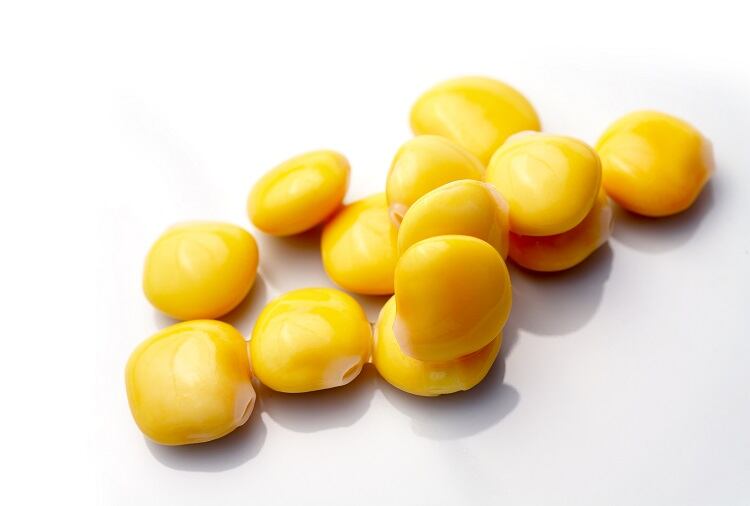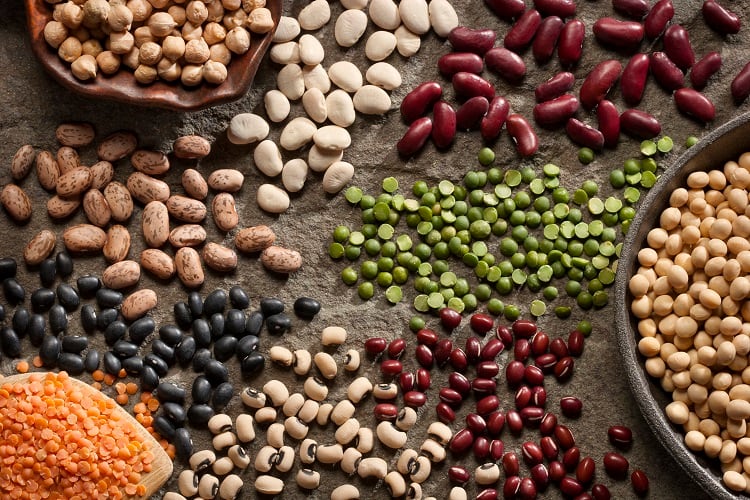As uptake of plant-protein diets grows, so too does awareness of the environmental impact of some of the most popular plant proteins, such as soy.
Irresponsible soy production is a leading cause of deforestation and biodiversity loss in the Amazon, and whether sustainably produced or not, most of the world’s soy is grown in Brazil – making the EU a major importer.
While most of this soy is used for animal feed, demand for the plant protein in food formulation continues to grow.
Lupin beans are considered the only protein crop whose seed protein content (up to 44%) that can rival that of soybean. They are also more tolerant to several abiotic stresses than other legumes, and as with all legumes can help improve health in poor soils.
But lupin seeds naturally accumulate bitter and toxic alkaloids, which humans find unpalatable. While sweet white lupin cultivars are now grown around the world, thanks to domestication, the precise identity of the underlying genes responsible for this ‘sweetness’ has remained uncertain.

Now, a team of researchers in Europe and the UK has established the identity of a lupin ‘sweet gene’ for the first time.
“We show that pauper, the most common sweet locus in white lupin, encodes an acetyltransferase (AT) unexpectedly involved in the early QA pathway,” explained the researchers in the study, published in Science Advances.
“In pauper plants, a single-nucleotide polymorphism (SNP) strongly impairs AT activity, causing pathway blockage.”
The team corroborated its hypothesis by replicating the pauper chemotype in narrow-leafed lupin via mutagenesis.
By establishing the identity of the sweet gene, the researchers believe they can facilitate lupin breeding and enable the domestication of other legumes containing quinolizidine alkaloids (QAs) – which are bitter in taste to humans.
QAs accumulate in around 300 other lupin species, some which could become ‘excellent’ crop candidates upon their removal, for example the forage legume tagasaste also known as tree lucerne, noted the researchers.
“The use of non-GMO techniques as exemplified here is particularly attractive for legume crop candidates for which transformation protocols are not available and those that are grown in geopolitical areas with restrictive GMO legislation.”

Most of the world’s lupins (85%) are grown in Australia, where the Grains & Legumes Nutrition Council sees great potential for the legume.
“Taste and texture are key elements in developing products that consumers will love and if we could find a solution to the bitter notes and textural issues, we are onto a new protein powerhouse for the plant-based ingredient market,” general manager Kathy La Macchia told FoodNavigator.
Aside from their high protein content, lupins are also high in fibre, at around 27g per 100g. This is twice the amount of fibre compared to most other legumes, explained La Macchia. “Lupins are low in calories but high in key nutrients. And when we talk on the soil health, lupins are nitrogen fixing plants that benefit the soil.
“Lupins are a small bean and are great for the planet’s health and great for our health.”
Source: Science Advances
‘The causal mutation leading to sweetness in modern white lupin cultivars’
Published 4 August 2023
DOI: 10.1126/sciadv.adg8866
Authors: Davide Mancinotti, Katarzyna Czepiel, Jemma L. Taylor, Fernando Geu-Flores.




